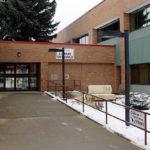Home »

Campaign launched to reduce COVID-19 spread in ski towns
In response to virus transmission in shared accommodation and socializing in ski communities, government and industry have developed a campaign that focuses on educating ski communities on COVID-19 health and safety protocols.

British Columbia’s ministries of Tourism, Arts, Culture and Sport; Health; and Municipal Affairs; in conjunction with WorkSafeBC; six local governments, including the City of Fernie and District of Invermere, and the Canada West Ski Area Association (CWSAA) have launched an education campaign to reduce COVID-19 transmission in ski communities.
“I want to personally thank the ski industry and communities who have been working non-stop to save this ski season, and I know most people are doing the right thing to avoid spreading COVID-19,” said Melanie Mark, Minister of Tourism, Arts, Culture and Sport. “However, those who are mixing households, throwing parties and ignoring the rules are putting jobs, our economy and our health at risk. Now is the time for each of us to step up and do our part so we can continue to enjoy all that ski communities have to offer.”
The campaign, Ski Strong BC, includes province-wide television and digital advertising, enhanced communication to employees and education for eliminating social gatherings in shared housing and short-term accommodation, employers assisting with contact tracing, and reinforcing quarantine and self-isolation accommodation information and protocols for people working and living in ski communities.
“Local governments are leaders in their communities, and they have played a critical role in helping people stay safe and healthy during the pandemic,” said Josie Osborne, Minister of Municipal Affairs. “By continuing to work together, we can help people understand why they need to follow protocols, guidelines and maintain social distancing to ensure local ski operators and other local businesses can remain open and support these local economies.”
Since the start of the pandemic, Invermere, Fernie, Whistler, Sun Peaks, Rossland and Revelstoke have had working groups focused on preventing COVID-19 transmission that include ski operators, municipalities, community destination marketing organizations, chambers of commerce and local health authorities.
“We’re calling on everyone to be the reason we save our season,” said Jack Crompton, mayor of Whistler. “Whistler doesn’t have an economy if we do not overcome COVID-19 transmission within our community. That’s why it is so important each of us be conscious about not participating in situations where COVID-19 spreads. Take a COVID-19 rain cheque on après with friends. Let’s stick to our households and socialize virtually.”
Actions undertaken by the CWSAA in advance of and during the winter season include developing a COVID-19 safety protocol document and a partnership with the Canadian Ski Council to develop ‘Ski Well, Be Well,’ a website for operational best practices and customer education.
“Ski areas are part of the fabric of many communities, especially in rural B.C.,” said Chris Nicolson, president and CEO of the Canada West Ski Areas Association. “This initiative puts into practice guidance from the Office of the Provincial Health Officer to build on the collaboration that exists between governments and community stakeholders to help prevent transmission in communities and helps maintain safe vital outdoor activity in communities important for physical and mental wellness.”
Ski resorts in B.C. play a vital role in the economic recovery of the province by generating revenue and employment throughout the winter months, and year-round local tourism economies in cases like Whistler. Ski resorts play an important role in enhancing the lives of local residents by providing access to safe outdoor activities for mental well-being and maintaining a healthy lifestyle throughout the pandemic, the Ministry of Tourism, Arts, Culture and Sport noted in a media release.
There are 37 ski areas throughout British Columbia, most of which are community based and primarily serve rural communities, including five in the East Kootenay (Fairmont Hot Springs, Fernie Ski Resort, Panorama Mountain Resort/Invermere, Kimberley Alpine Resort and Wapiti Skill Hill at Elkford.
The ski industry in B.C. is a significant contributor to the provincial economy through $2 billion in expenditures annually and over 21,000 jobs.
Lead image: A shot from Fernie Alpine Resort before the pandemic. e-KNOW file photos
e-KNOW







